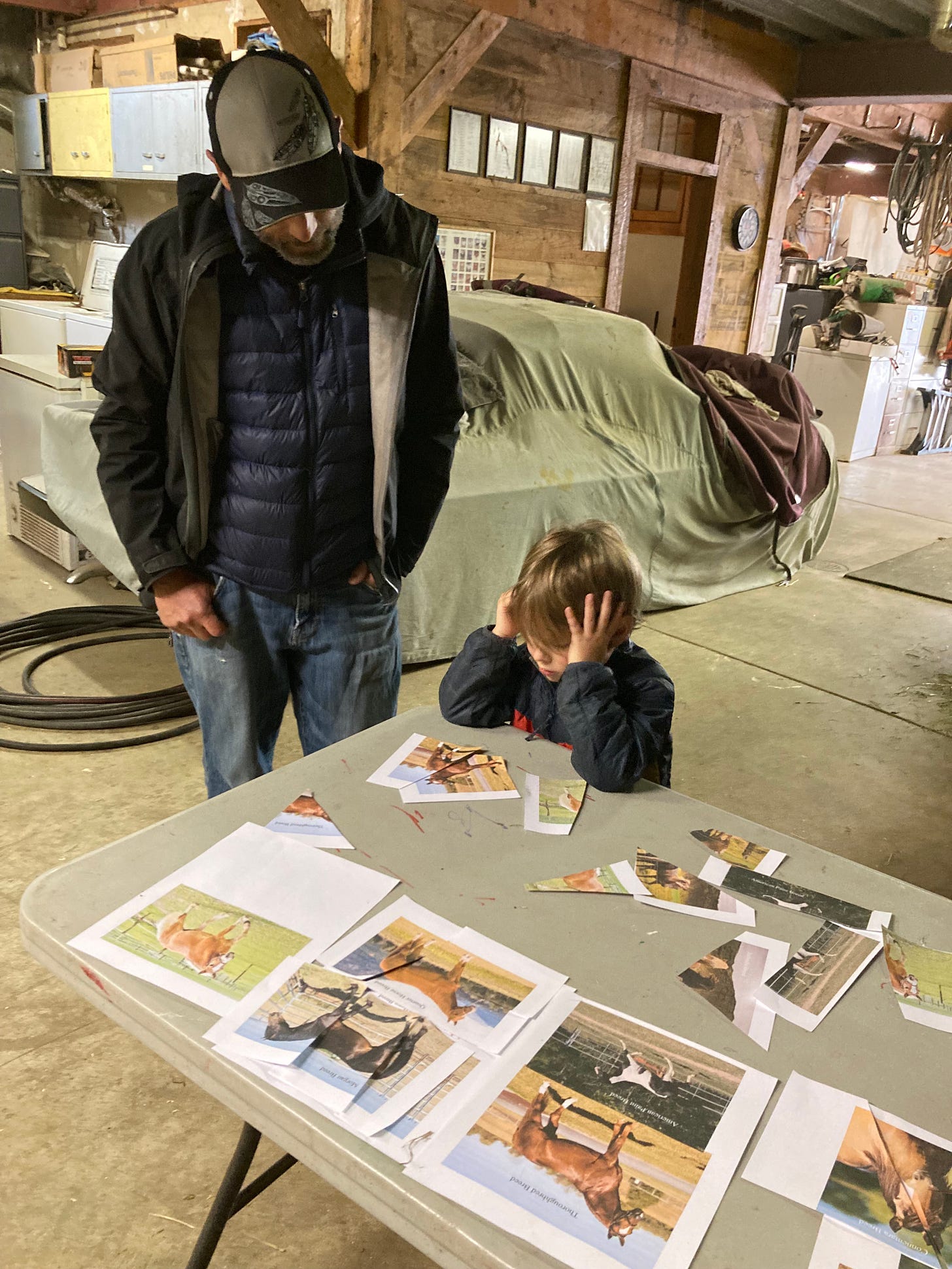The Brain: a puzzle
Life is a mystery. Last week, I gave a lesson to a 4-year-old boy who is neurodivergent. We have been working together for five months. When you meet this boy, who I will call Nico, he looks like a typical boy. He is verbal (most of the time), he laughs, he plays, he observes and senses his surroundings.
What you don't see:
He processes sensory information differently.
He has visual discriminating issues and sometimes has trouble seeing the difference between letters, shapes or objects. A letter in a different font might not be recognizable to him.
He can regulate in certain situations when he feels safe and comfortable.
When he is overloaded, he will shut down and become quiet.
Nico is a neurodiverse child which means he has atypical neurological behavior and development. He is wired differently, BUT he is not different in many regards.
Part of my challenge as a therapeutic riding instructor is to follow his lead and be aware of his non-verbal cues. You know who else can be like this? A horse!
Nico is very curious about the evolution of horses and the breeds of horses. As we started out this lesson, we began with our routine of feeding the chickens. As we discussed our plan for the day, I mentioned that I had a puzzle for him to try. Out of the corner of my eye, I noticed his mother froze. I let it go and did not think much about it.
Before the lesson, I printed out images of different breeds that live at our barn. I cut the images in either two or three pieces. I gave Nico some background about the breeds and how the breeds have evolved over time. Nico's challenge was to assemble the pieces and match the images that I printed and did not cut.
Again, I notice Nico's mother stepping back and taking more photos than usual. No real thought other than this is interesting. With minimal assistance, Nico finished one of the seven puzzles. I asked him if he would like to try another one. I gave him the option to discontinue. With little asking, he trudged on. Maybe in less than fifteen minutes, he finished all seven puzzles. He struggled some but he got through it!
Not all neurodiverse children have the same brains. Think eggs. Some are scrambled. Some are fried. Some eggs are part of a beautiful omelet. Some eggs are part of a quiche that is only prepared by an expert chef, like Nico. Do you get it? Mind your own eggs. And don't assume everyone likes your preference of eggs.
Nico reminded me that the tasks I chose in each lesson need to be tailored for him. Mona Delahooke confirms this in her book, Beyond Behaviors: Using Brain Science and Compassion to Understand and Solve Children's Behavioral Challenges,
We need to customize the way we communicate with children, making sure we do so in ways that are effective for each child's mind and body – that is, how each child processes information through her body, emotional system, senses and thoughts.
She continues,
Neurodiverse children with sensory/ movement differences might have complex thoughts and ideas they are unable to express or behaviors they are unable to inhibit because of the way their brains are wired.
I don't know why on that morning I decided to create a puzzle game for Nico. Something inside called me that this is the right action. I decided to go with this intuition and let it unfold.
After the lesson, the mother sent me a message and then I found out what I stumbled upon. Nico has an aversion to puzzles. His occupational therapist expressed to his mother that he may has some visual processing issues specifically with an inability to close a picture with his mind.
This was a small victory for Nico. His mother shared why she was taking so many photos during the lesson. Her words articulate what I did not know:
Nico either completely refuses to acknowledge puzzles, or he tosses them on the ground. And it can only be made when the demand seems doable—when he is in an environment where his nervous system trusts those around him and he is in a calm state. It helps when the puzzle is something he is genuinely interested in as well. Puzzles give him anxiety.
If you work with children, you know to hold on to any feedback from a child or parent. Nico’s mother shared this with me, “Thank you for creating this space. He did so incredibly well. It was major progress for him.” His grandmother shared, “So proud of him! That's monumental! Such progress!”
The lesson for me is to continue asking the parents, families and people who support and provide for neurodiverse children. They are observing and learning from their child every day. This experiment worked out for the better. This is a reminder to us all who work with these children who are revolutionizing the world: tailor the communication to their styles and let them know that they are safe!
A final note. This work does not happen without Tully and the other horses. These creatures are the gateway to this healing.
When Nico and his mother were driving home after the lesson, Nico pointed to an American Paint in the field, “hey, we learned about him today.”



Fabulous intuitive and experiential learning program incorprating your unique team members - horse and chickens, Nico and you! I enjoy your articles immensely Camron. So inspiring and uplifting! Thank you